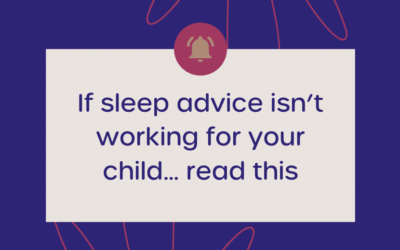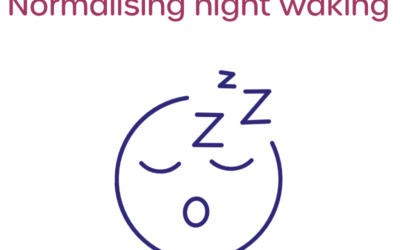When the house finally quietens, the washing is folded, and the lights are dimmed, many parents find that their body is still buzzing with tension. The day might be over, but your mind is not. You might lie in bed scrolling, replaying your child’s meltdowns, or worrying about tomorrow’s to-do list.
This is where gentle night-time self-care for parents becomes essential. It is not about indulgence or luxury; it is about recovery. It is how you tell your nervous system, “You are safe now.”
Your body needs help shifting from the fight or flight mode of parenting to the rest and restore state that allows true sleep and emotional healing. A calm parent at night is a better-rested, more connected parent in the morning and that matters.
The Science Behind Night-Time Self-Care For Parents
Your nervous system plays a key role in how easily you fall asleep and how deeply you rest. When you are stressed, your body releases cortisol, a hormone that keeps you alert and ready to respond to your child’s needs. The problem is, many parents never switch it off.
Self-care at night helps lower cortisol and increase melatonin, the sleep hormone. Small, repeated rituals like slow breathing, stretching, and journaling help signal to your brain that it is time to unwind. Just as you create a bedtime routine for your child, your body also thrives on predictability and rhythm.
Even ten minutes of gentle unwinding can help your heart rate slow, your thoughts soften, and your sleep quality improve.
Creating a Calm Evening Environment
The first step to night-time self-care is setting the mood. Your environment affects your ability to relax more than you may realise.
Try these simple shifts:
- Dim the lights an hour before bed to signal your brain that night is approaching.
- Lower the noise level with soft music or a gentle podcast.
- Tidy one small space so your mind feels lighter when you wake up.
- Switch off screens or use night mode to reduce blue light stimulation.
- Create a small corner for yourself with a blanket, candle, or book.
These small changes cue your body to slow down and prepare for rest.
Body Care: Relaxing the Physical Tension
Parenting is physical work. You carry children, lift laundry baskets, push prams, and bend for endless pick-ups. By evening, your muscles are asking for attention.
Try these physical self-care ideas:
- Take a warm bath or shower to relax muscles and regulate body temperature.
- Apply magnesium balm or a soothing body lotion.
- Do gentle stretches for your neck, shoulders, and lower back.
- Practise slow breathing – in through your nose for four counts, out through your mouth for six.
A calm body supports a calm mind. When your muscles release tension, your breathing slows, and your nervous system follows.
NHS Sleep and Relaxation Techniques
Mind Care: Calming Thoughts Before Sleep
Your mind often resists rest. Parents frequently report feeling mentally overstimulated at night — thinking about tomorrow’s meals, appointments, or emotions from the day. The key is to empty your mind gently.
Journaling before bed is a powerful way to offload worries. Try writing down three sentences:
- Something that went well today.
- Something that can wait until tomorrow.
- Something you are grateful for.
If journaling feels too much, use “mental parking”. Keep a small notebook beside your bed and write any racing thought that appears. Tell yourself, “I will handle this in the morning.”
Mantra for the evening:
“It is safe to rest now. My mind can pause while my body restores.”
Emotional Care: Regulating Your Nervous System
Parenting is emotionally intense. The constant multitasking and vigilance keep your nervous system on edge. Self-care at night is about emotional regulation, not just relaxation.
When you feel tense or anxious at bedtime, try grounding yourself:
- Feel your feet against the floor or your back against the mattress.
- Name five things you can see, four you can touch, three you can hear, two you can smell, and one you can taste.
- Breathe deeply and notice where your body feels tight.
Repeat calming affirmations such as:
“I did enough today.”
“My child does not need a perfect parent, only a present one.”
“Peace begins with me.”
A Gentle Night Routine to Try Tonight
Creating rhythm matters more than having a strict schedule. Here’s a gentle night rhythm you can adapt:
8:30 pm – Tidy one area or prepare for tomorrow.
9:00 pm – Have a warm drink, apply skincare, or stretch.
9:30 pm – Switch off screens and dim the lights.
10:00 pm – Read, breathe slowly, and settle into bed.
Consistency teaches your brain and body that it is safe to rest.
Your Nervous System and Your Child’s Sleep
Your calm becomes their calm.
When you are anxious or rushed, your child feels it. Children mirror your emotional state through co-regulation. A calm parent’s body helps a child’s body feel safe enough to sleep.
Before bedtime, take sixty seconds. Drop your shoulders, exhale slowly, and soften your face. That tiny pause can shift the energy of the whole evening.
FAQs: Night-Time Self-Care for Parents
Q1: How long should my night routine be?
Even ten minutes of intentional calm can make a difference. The goal is consistency, not duration.
Q2: What if I fall asleep while journaling or meditating?
That’s perfectly fine. It means your body finally feels safe enough to rest.
Q3: Can self-care at night improve my mood the next day?
Yes. Quality rest supports emotional regulation, patience, and focus — all vital for parenting.
Download Your Free Gentle Night-Time Self-Care Guide
If you are ready to create calmer evenings, download your Gentle Night-Time Self-Care Guide — a beautifully designed, five-page printable filled with soothing rituals and prompts.
It’s free when you join The Nest, my supportive WhatsApp community for mums (£5 per week). Inside The Nest, you’ll find expert guidance, gentle parenting tools, and daily reminders to nurture yourself as much as your little one.
👉 Join The Nest and get your free guide
If you need one-to-one help managing bedtime battles or emotional overwhelm, you can also book a HV Half Hour or my Calm & Connected package for personalised support.
Final Thoughts
You spend your days helping others rest, grow, and feel safe, but you deserve that same care too.
Night-time self-care is not selfish. It’s essential. When you end your day with compassion, you teach your child what calm truly looks like.
So tonight, dim the lights, take a deep breath, and whisper to yourself:
“I have done enough for today. Now it is time to rest.”




0 Comments